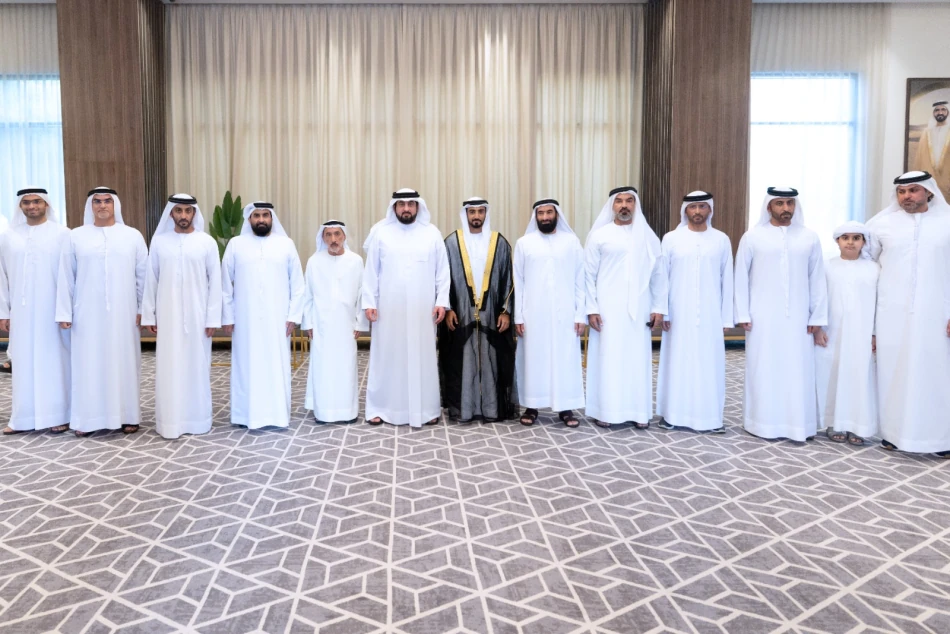
Ahmed bin Mohammed Attends Al-Falasi and Al-Matroushi Celebrations
Dubai's Royal Family Celebrates Cross-Cultural Union as Government Official's Son Weds
Sheikh Ahmed bin Mohammed bin Rashid Al Maktoum, Deputy Ruler of Dubai, attended a high-profile wedding reception that underscores the emirate's tradition of fostering social cohesion within its government circles. The ceremony celebrated the marriage between Suhail, son of Dubai's Human Resources Department Director General Abdullah Ali bin Zayed Al Falasi, and the daughter of Ahmed Rashid Ahmed Al Matrooshi, highlighting the interconnected nature of Dubai's administrative elite.
Royal Endorsement Reflects Dubai's Social Fabric
The presence of Sheikh Ahmed bin Mohammed at Sunday's reception at Majlis Al Khawanej demonstrates the emirate's commitment to maintaining close ties between its ruling family and senior civil servants. Such appearances are not merely ceremonial—they reinforce the social bonds that have historically underpinned Dubai's governance model, where personal relationships often facilitate policy implementation and administrative efficiency.
The Sheikh's attendance and his wishes for the couple's "stability, success, and happiness" reflect a broader pattern of royal engagement with government officials' families, a practice that strengthens loyalty within Dubai's bureaucratic apparatus.
Strategic Significance Beyond Ceremony
Government Cohesion Through Personal Bonds
Abdullah Ali bin Zayed Al Falasi's role as Director General of Dubai's Human Resources Department makes this wedding particularly significant. His department oversees the emirate's vast civil service, managing talent acquisition and retention strategies that are crucial to Dubai's ambitious economic diversification plans.
The royal family's visible support for such personal milestones helps maintain the majlis tradition—an informal governance system where personal accessibility and relationship-building complement formal administrative structures.
Comparison with Regional Governance Models
This approach contrasts sharply with more bureaucratic systems in neighboring countries. While Saudi Arabia has moved toward more institutionalized governance structures under Vision 2030, Dubai continues to leverage its smaller scale and family-business culture to maintain agility in decision-making processes.
The UAE's federal structure allows each emirate to preserve distinct governance styles, with Dubai's model proving particularly effective for its service-oriented economy and international business hub aspirations.
Implications for Dubai's Administrative Future
Such high-level social integration suggests Dubai's leadership remains confident in its traditional governance approach, even as the emirate faces increasing complexity from rapid population growth and economic diversification. The personal bonds reinforced at events like this wedding may prove crucial as Dubai navigates post-pandemic recovery and positions itself for the next phase of regional competition with Saudi Arabia's NEOM project and Qatar's World Cup legacy initiatives.
Most Viewed News

 Sara Khaled
Sara Khaled






